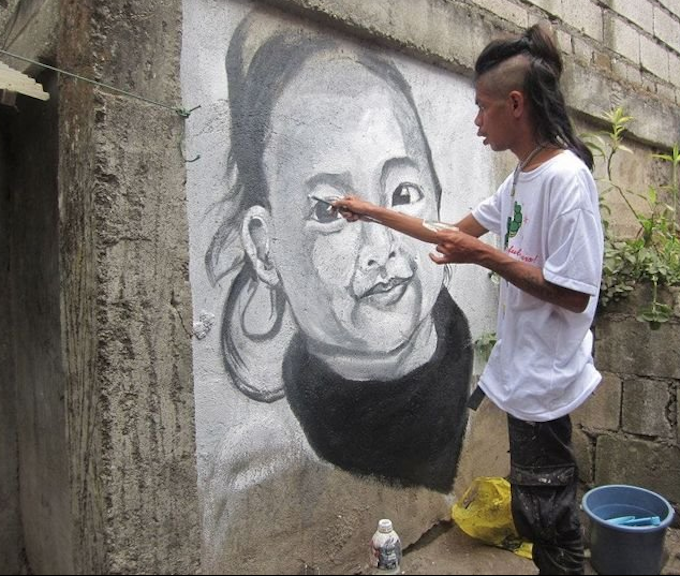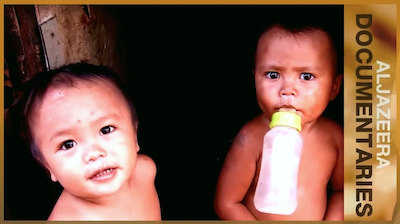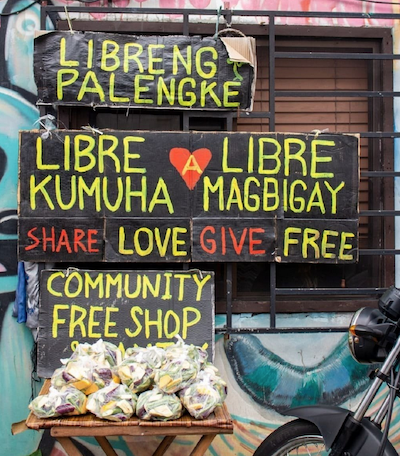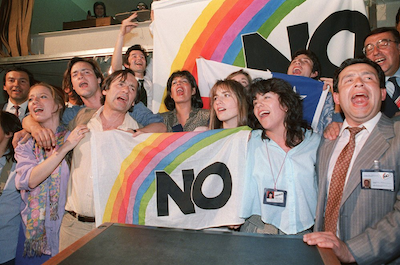
COMMENTARY: By Keeara Ofren
Many of you will know that I am Filipina. The past few days have been quite a journey following the Philippine elections, culminating with a frightening win of the dictator’s son Bongbong Marcos Jr and Sara Duterte, daughter of the outgoing president Rodrigo Duterte.
There is speculation that their leadership style may be more despotic than their authoritarian parents (with proposals to “rewrite history” on previous dictatorship). I am worried that this is election result will genuinely risk lives in what could be a continued crackdown on activists and a prolonged massacre of the poor.
There are also significant fears around worries related to China’s influence in the South China Sea and beyond, especially on human rights matters.
- READ MORE: Philippines forgets history and sells its soul for another Marcos
- Other Philippine elections reports
This is an election the world should be paying close attention to, as it fortells the result of structural inequality through a lack of civics education and the influence of social media.
I have not yet seen an interpretation of the results for friends who may not be familiar with Filipino politics. I also think I may have a different view, given my family’s heritage as working class rural Filipinos and growing up in the Western world.
The Philippines was, and sadly still is, a place where you can be “redtagged” and assassinated for your political views.
The ousted President Ferdinand Marcos was known for a reign of terror through martial law, widespread torture, politically motivated violence and corruption.
A period of hope
After his rule, there was a period of hope with the Yellow Revolution where the country turned towards democracy and the idea of becoming a cosmopolitian and educated state.
This was the kind of pattern hoped for with this post-Duterte election, moving towards a country free from extrajudicial killings, punitive culture and violence against the poor.

But by Tuesday morning, this was not to be. Outgoing Vice-President Leni Robredo, the opposition leader who our hopes were on to win, fell further and further behind in the results.
Philippines has one of the highest percentage of social media users in the world, the majority of political engagement and general learning happens with the internet.
These past few days, several whistleblowers called into local radio stations and posted on Reddit revelations of mass paid troll farms and social media strategies to deliberately create discord.

One of the most worrying allegations was the use of double agents, which I fear is starting to create a divide within Filipino activist communities.
However, even without troll farms, many Filipino voters, especially in disenfranchised rural areas, are single issue voters or may vote in exchange for food and essentials for their family — this is something I have witnessed personally.
Petri dish for mass disinformation
This, combined with a country of varying levels of access to education and critical thinking, is a petri dish for mass disinformation. We may have seen seeds of this in the West, with the growth of disinformation and movements increasingly willing to turn to political violence.

I am watching the situation with apprehension, I am worried for my extended family. For those with family in the Philippines (or any other authoritarian country) who feels the same, it is high time to secure activist movements.
For those similarly disappointed by the result: Political participation is not just with the ballot box, it’s building awareness, learning as much as we can and thinking about how we can protect and empower vulnerable and disenfranchised people.
The popular campaign against the 1988 “NO” referendum of Chile marked a new era of people’s empowerment free from the dictator Pinochet and neoliberalism. This was documented in an inspirational 2012 film called No. And this is what many Filipinos were hoping for in this election, but alas…
Laban! … Fight on!
Keeara Ofren is a final year law student at the University of Auckland – Waipapa Taumata Rau and a former president of Amnesty On Campus. She works in communications for the Auckland Refugee Council. This article was first published on her Facebook page and is republished here with permission.













































